LATEST NEWS


(As the May 21 mayoral runoff election approaches, Frying Pan News is asking voters what they believe the next mayor’s priorities should be — as well as what he or she should avoid doing once in office. This week reporter Marc Haefele interviews South Los Angeles residents at the Baldwin Hills Crenshaw Plaza, the sprawling retail complex located at Martin Luther King Jr. and Crenshaw boulevards.)
Carmen Navarro:
I would hope the new mayor would at least do better than the current one. Of course, they are all politicians aren’t they — what can you expect? Sometimes the most you can do is to hope that it just doesn’t get worse when someone new is elected.
But here’s what I hope the new mayor would do — do a lot more to help the poor folks. Help them to get more opportunities. The economy right now is still simply horrible for poor folks.
» Read more about: L.A. Mayor’s Race: The View from Crenshaw »
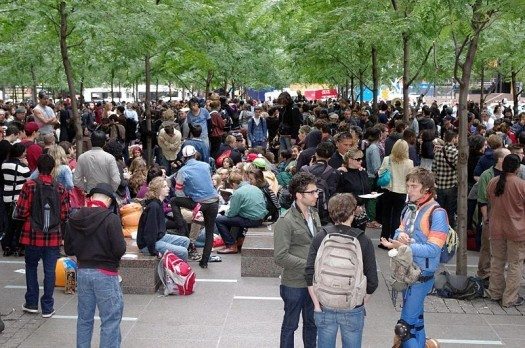

Was Occupy Wall Street just a dream? The fall of 2011 was one of the most exciting and optimistic times of my life as a progressive. Seeing thousands of young people all over the country flock to their local occupations was truly amazing and historic. I felt that we were in the middle of a cultural awakening and that a huge radical change was just on the brink.
The other weekend I went to New York City to see where it all began up close and in person. I walked to Wall Street to find Zuccotti Park and literally walked right past it. Quite naively I expected a huge space with progressive activists still meeting and planning the revolution, but found no one. In fact, Zuccotti Park is a tiny little plaza where tourists rest after visiting Ground Zero and taking pictures of the Wall Street bull sculpture. On the subway back to my friend’s house,
» Read more about: Zuccotti Park Blues: Occupy Wall Street Reconsidered »


(Orlando Ayala has been a truck driver at the ports of L.A. and Long Beach for 10 years. He recently sat down and talked to LAANE Deputy Director Patricia Castellanos about the successful effort to improve conditions at Toll, the global logistics company where he works. Yesterday marked the one-year anniversary of the election in which Toll workers chose to be represented by a union – the first such election in three decades.)
I was recently accused of thinking with my heart and not with my head, of letting my passions and outrage get the best of me and guide my actions. At the time, this wasn’t a compliment. But these traits have served me well. If not for them, I may not have crossed multiple borders seeking a better life in the U.S., or been driven to action by the outrage I felt at seeing injustices suffered by the thousands of port truck drivers at the largest port in the country.
» Read more about: How Organizing for a Union Changed My Life »
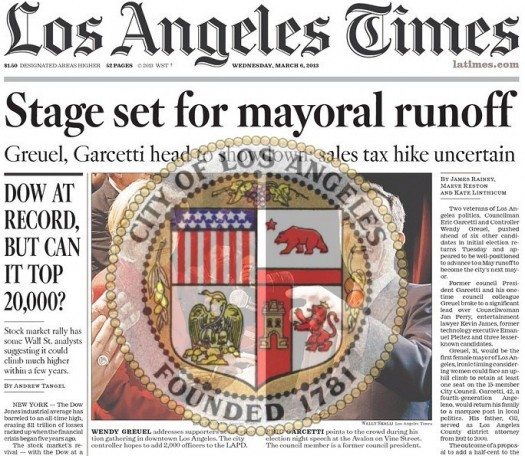
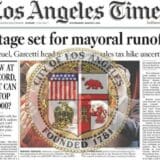
(Raphael “Raphe” Sonenshein is executive director of the Edmund G. “Pat” Brown Institute of Public Affairs and has headed charter-reform and neighborhood council review commissions. A California State University political science professor, Sonenshein is also an author whose books have analyzed racial and reform politics. He spoke to Frying Pan News about what he believes are the biggest tasks facing L.A.’s next mayor – as well as telling reporter Marc Haefele what candidates Eric Garcetti and Wendy Greuel should avoid during the campaign before the May 21 runoff election.)
The Biggest Job
The next mayor has to reinvent his office as an office of strength, because just being elected doesn’t hand you that. Once you are in you will be dealing with very powerful forces of the community and very powerful forces at City Hall —
» Read more about: Raphe Sonenshein’s Advice to Garcetti and Greuel »
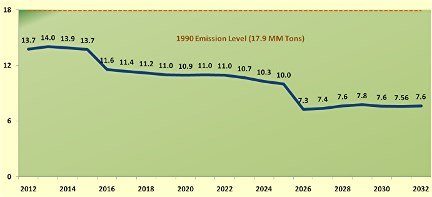
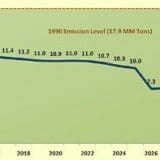
The Los Angeles Department of Water and Power (LADWP) recently released its “Energy Efficiency Portfolio Business Plan” for fiscal years 2012-2014. For the past few years, LADWP has been talking the talk about doing more energy efficiency, and (importantly) using efficiency as its top priority resource for getting out of coal power. This plan shows that LADWP is walking the walk!
Particularly impressive aspects of the plan:
Overview of the plan:
» Read more about: Energy Efficiency: Walking the Walk at LADWP »
The White House and prominent Democrats are talking about reducing future Social Security payments by using a formula for adjusting for inflation that’s stingier than the current one. It’s called the “Chained CPI.” I did this video so you can understand it — and understand why it’s so wrongheaded.
Even Social Security’s current inflation adjustment understates the true impact of inflation on the elderly. That’s because they spend 20 to 40 percent of their incomes on health care, and health-care costs have been rising faster than inflation. So why adopt a new inflation adjustment that’s even stingier than the current one?
Social Security benefits are already meager for most recipients. The median income of Americans over 65 is less than $20,000 a year. Nearly 70 percent of them depend on Social Security for more than half of this. The average Social Security benefit is less than $15,000 a year.
Besides,
» Read more about: Robert Reich: Don’t “Chain” Social Security »


I have been humming one of my favorite Elvis Costello songs from the moment I heard the news of Margaret Thatcher’s death Monday morning. The chorus never fails to move me:
“When they finally put you in the ground,
I’ll stand there laughing, and tramp the dirt down.”
A friend forwarded me some other excellent Thatcher songs, and I spent last night on a truly enjoyable trip down Memory Lane.
The songs and videos gathered include Costello’s, along with Billy Bragg’s, and the Specials’ “Ghost Town” – which was the soundtrack to a summer spent in London when I was 14 — and more hardcore offerings. Perhaps Thatcher’s one positive legacy is the inspiration she provided to punk rock. I remember the kind of ecstatic anger I felt listening to some of those bands – and Thatcher was an excellent focus for that anger.


The national discussion on immigration reform is heating up now that the “Gang of Eight” plans to release its detailed version of the Senate bill. As with similar efforts in past years to pass comprehensive immigration reform through Congress, the draft legislation to start the process will undergo massive changes as legislators debate the issue, especially as it moves into the House of Representatives. Yet one point has received considerably less attention in the national debate, but will probably make the most difference to most immigrants and the economy– the enforcement of workplace rights.
I have been involved in the debate on immigration reform now for more than 25 years, since the passage of the Immigration Reform and Control Act of 1986 (IRCA). I have seen the demographics of the country shift and have witnessed this debate in many stages and from many perspectives.
One thing we learned from the Immigration Reform Control Act (IRCA) of 1986 is that it fell dramatically short when it came to improving the working conditions of the estimated three million immigrants who gained legal status.
» Read more about: Immigration Reform Alone Won’t End Workplace Wrongs »
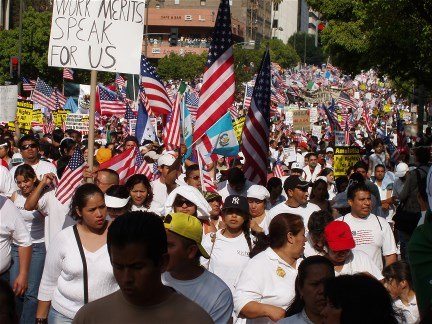

It was announced over the weekend the bipartisan Senate “Gang of Eight” came to an agreement in principle on a major aspect of creating a commonsense immigration process that benefits all workers.
This agreement includes a new kind of worker visa program called the W-Visa, which will work for everyone, not just employers.
Here are five things you need to know about this new employer-based visa:
» Read more about: Five Important Points of the Immigration Agreement »
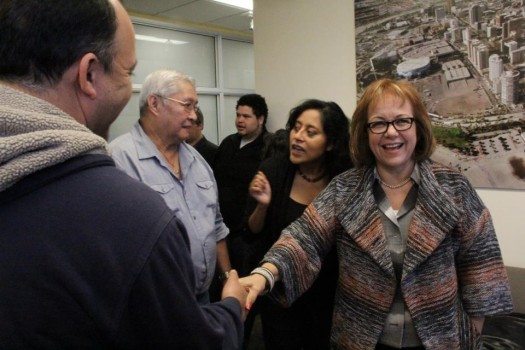

Hyatt hotels in Long Beach, UNITE HERE Local 11 and Long Beach City Councilwoman, Dr. Suja Lowenthal, announced Monday that associates at the city’s Hyatt Regency and Hyatt The Pike have elected to be represented by UNITE HERE Local 11.
All Hyatt associates who will be represented by UNITE HERE Local 11 in Long Beach were eligible to vote in the election, which was supervised by an independent election judge. The judge verified the results last week, noting that a majority of Hyatt associates who were eligible to vote chose to have UNITE HERE represent them. Hyatt associates were notified last week of the election results.
“We’ve always maintained strong relations with our associates and unions representing Hyatt associates in other locations, and we’ve always believed Hyatt associates should have the right to choose union representation in an election,” said Stephen D’Agostino, General Manager of Hyatt Regency Long Beach. “We look forward to working with UNITE HERE to reach a contract that will continue to support our associates and maintain our high workplace standards.”
In November 2012,


With a trumpet blast from the sources of conventional wisdom, the Keystone XL pipeline charged through the news sources last month. When the State Department released its positive environmental report that is seen as clearing the way for a pipe full of Canadian oil slurry to run through the heartland of America to the refineries of Houston, the pundits lined up to salute. They said the XL would add to American oil independence. They said it would bring jobs. They said it would never cause any of those silly problems the environmentalists were bothered about.
But as usual, the CW is wrong on all counts. The proposed pipeline will bring crude from the tar sands in Alberta province, down across the fragile Midwestern Ogallala aquifer to south Texas where it would be refined by the oil industrial complex, then shipped out to markets in Africa and South America. That’s right — the oil transshipment is not intended to produce for the American market,
» Read more about: Keystone Pipeline: Canadian Profits, American Woes »

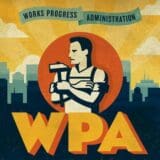
The question we must ask today, as we remember the Works Progress Administration is: Why isn’t there the political will to take dramatic steps to address today’s jobs emergency?
Let’s start with the obvious; there was a far greater share of Americans unemployed in the Great Depression. In 1934, unemployment peaked at 24.9 percent. One-out-of-four people officially out of work is much more of a crisis than one-out-of ten (9.6 percent), the peak in the current recession in 2010. The impact is even greater than two-and-a-half times, as such a huge drop in consumer spending means that marginal businesses able to survive 10 percent unemployment rates were swept away in the Depression. And during the Depression – much more than now – it was impossible not to know people whose lives had been devastated.
The other obvious difference is that we have cushioned the impact on the unemployed through the establishment of New Deal programs,
» Read more about: The WPA Turns 78 — Where’s Our Version Today? »


“I remember my Mom’s heartbreak when she could not afford to give my younger brother the treatment he needed when we learned he had a hip disease,” the man said. “It was my Mom – the wife of a WWII veteran — who taught me something I still believe today: This country is the greatest in the world. America’s greatness is largely because of how we value the weakest among us. Quality healthcare services must be accessible and affordable for all – not just those in certain ZIP codes or tax brackets.”
That’s music to the ears of progressives, maybe even Top-40ish in its soothing, harmonious familiarity. The dissonant note is who actually spoke the words: Rick Scott, the Republican governor of Florida, who swept into office on an uncompromising anti-Obama, stop-health-care-reform platform, and was one of the first to sign on to lawsuits challenging the constitutionality of the Affordable Care Act (ACA).
» Read more about: Medicaid: Conservatives Get Flexible (Sort Of) »


A black man—Barack Obama—sits in the Oval Office. A black woman—Oprah Winfrey—joins Warren Buffett and Bill Gates on the Forbes magazine list of richest individuals in the world. A black couple—Jay-Z and Beyonce—own a basketball team and buy an $80,000 diamond-encrusted Barbie doll for their one-year-old daughter. With such examples of impressive success and vulgar excess it’s easy to think that America’s long history of racial inequality has come to an end.
But then along comes a Brandeis University study showing that even as racial inequalities in terms of education and income have narrowed, the gap in wealth between black and white families has dramatically widened. Between 1985 and 2009, the gap in wealth between white and black families nearly tripled. It may be tempting to imagine that poor choices or lack of a work ethic can explain the disparity, but the study found that for the most part, the wealth gap is not the result of differences in education,
» Read more about: The Winner-Take-All Economy: A Black and White Story »
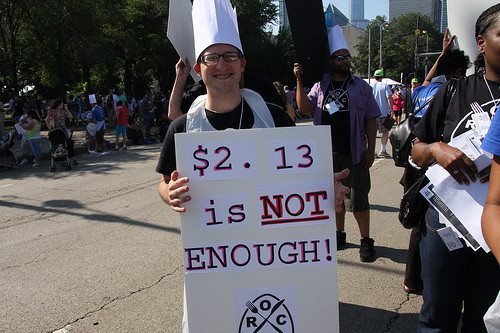

For Merleane S., a 19-year-old, single mom, her work shift on March 15 included taking and filling orders at a fast food restaurant in Palm Coast, Florida. She was earning the state’s minimum wage of $7.79 per hour. Similar to other U.S. workers, she was trying to make sure her family was secure.
That same day, in the nation’s capital, lawmakers in the U.S. House of Representatives unanimously voted against an amendment to H.R. 803, a job training bill. That amendment would have gradually increased the federal minimum wage from $7.25 an hour to $10.10 an hour by the end of 2015.
The amendment marked one of the most recent efforts regarding an issue that is gaining momentum nationally — an increased minimum wage. If the idea is approved, it would affect millions of workers across the income spectrum, including the middle class.
Merleane,
» Read more about: Not Only the Poor Benefit from Raised Minimum Wage »
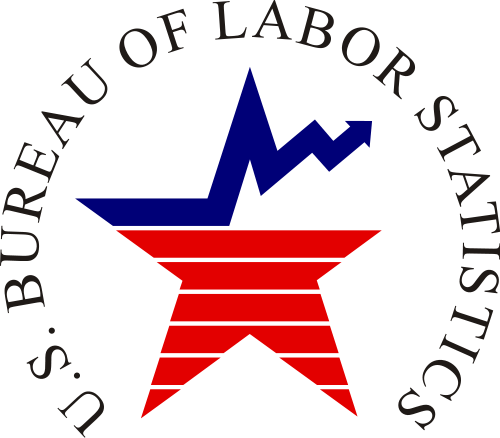

Bad news on the economy. It added only 88,000 jobs in March – the slowest pace of job growth in nine months.
While the jobless rate fell to 7.6 percent, much of the drop was due to the labor force shrinking by almost a half million people. If you’re not looking for work, you’re not counted as unemployed.
That means the percentage of working-age Americans either with a job or looking for one dropped to 63.3 percent — its lowest level since 1979.
The direction isn’t encouraging. The pace of job growth this year is slower than its pace last year.
What’s going on? The simple fact is companies won’t hire if consumers aren’t buying enough to justify the new hires. And consumers don’t have enough money, or credit, or confidence to buy enough.
It’s likely Americans are beginning to feel the pinches of January’s hike in the payroll tax combined with the government budget cuts known as the sequester.
» Read more about: April Is the Cruelest Month As the Economy Crawls Along »


The Asian Pacific American Labor Alliance (APALA), the Los Angeles Alliance for a New Economy (LAANE) and other community groups took legal action against the proposed Chinatown Walmart today by filing a lawsuit against the City of Los Angeles. The lawsuit challenges the process by which the building permits were issued.
The plaintiffs allege that the Department of Building and Safety violated city and state laws which require public approval of the permits by the Community Redevelopment Agency/LA board. Eighty Chinatown residents, Walmart workers and community activists rallied the same day to adopt principles for all development in Chinatown and demand that the community’s voice be heard.
The Asian Pacific American Labor Alliance, with the support of LAANE and Chinatown small businesses, filed multiple appeals against the permits when the store was first proposed in February 2012. The appeals asserted that the permits received inadequate review and were erroneously issued,
» Read more about: Community Groups Sue City Over Chinatown Walmart Permits »
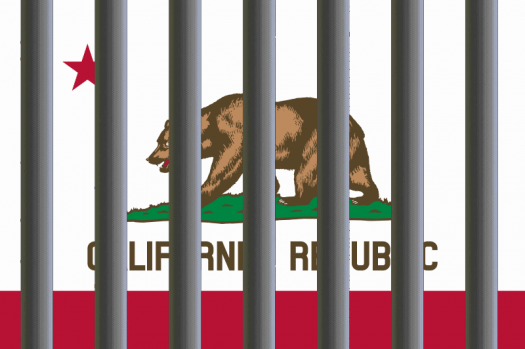

As California grapples with a prison system so broken that the U.S. Supreme Court has mandated reductions in the number of prisoners it holds, the three-part “Smart Justice: Rethinking Public Safety in California” discussion begun this past week at the University of Southern California is examining both consequences and possible solutions to the state’s mass incarceration mess.
Moderated by Tomás Rivera Policy Institute director Roberto Suro, the first session—titled “California’s Corrections Systems and the Lives They Impact” and organized by Californians for Safety and Justice and USC’s Students Talk Back program—featured presentations by James Austin, president of the JFA Institute and author of a ground-breaking report on reducing prison populations, Susan Burton, former inmate and founder of A New Way of Life Reentry Program, and USC graduate students Emily Reisner and Jennifer Moore.
A New Way of Life
“Each time I got out of prison,
» Read more about: Ending California’s Incarceration Quagmire »


How did the Los Angeles Metro recently leverage the purchase of 550 clean-fuel buses to create 200 U.S. manufacturing jobs?
What will it take to link the billions of federal dollars used for transportation investments to domestic job creation?
To begin addressing these questions, Living Cities invites you to join a webinar April 10 about the Transportation and American Jobs Project, a national effort to ensure that transportation investments using federal funds create quality jobs for American workers. Specifically, the webinar will provide an overview of the U.S. Employment Plan (USEP), a model transit procurement program which incentivizes investments in domestic manufacturing jobs. This innovative model has the potential to have significant economic impact in the rebuilding of the U.S. manufacturing sector. Speakers will include Professor Manuel Pastor, from the Program for Environmental & Regional Equity (PERE) at USC, and Madeline Janis,
» Read more about: Living Cities’ Invitation to a Job Creation Webinar »
It’s hard to present the history of a social movement without giving the impression that all the exciting fights have already been won and that taking action now is irrelevant. Sometimes the activists of the past suggest they knew more than they did at the time, and were unique in their ability to organize and take risks. All of this can make for boring documentaries and a pomposity that’s off-putting to anyone born after the action being described.
Somehow Feminist: Stories from Women’s Liberation 1963-1970, a new film by Jennifer Lee, avoids these fatal flaws. By including her own personal awakening to 1960s feminism through the making of the film, Lee opens a window onto a movement that feels almost as new and exuberant as that early movement did.
Conditions for women in 1963 were unimaginably strict and confining (Lee refers to sex-segregated want ads as emblematic of the period),
» Read more about: Film Review: “Feminist: Stories from Women’s Liberation” »